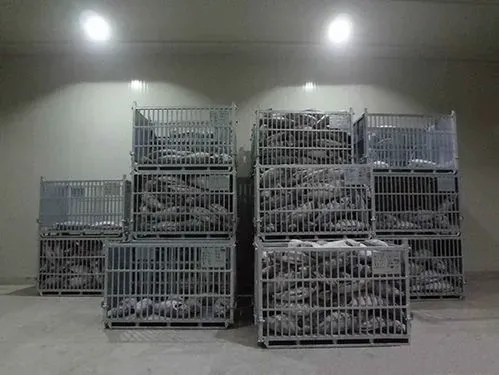freezer room
The Fascinating World of Freezer Rooms
In today’s world, where food safety and preservation have become paramount, freezer rooms play a crucial role in various industries. These specialized cold storage facilities are designed to maintain low temperatures, preventing spoilage and extending the shelf life of perishable goods. From restaurants to grocery chains, freezer rooms are essential to ensuring that products remain fresh and safe for consumption.
A freezer room is typically a large space, often constructed with insulated panels, which helps to maintain a consistent temperature, usually below -18 degrees Celsius (0 degrees Fahrenheit). The technology behind freezer rooms has evolved significantly over the years, allowing for more efficient energy use and improved temperature control. Advanced refrigeration systems ensure that the temperature remains stable, even during peak loads when doors may open frequently, releasing cold air.
The applications of freezer rooms are vast. In the food service industry, restaurants and catering companies rely on these cold storage units to keep ingredients fresh. This can include everything from meats, seafood, and dairy products to vegetables, fruits, and prepared dishes. By maintaining these items at optimal temperatures, businesses can reduce food waste and enhance food safety, translating to cost savings and better customer satisfaction.
In addition to restaurants, supermarkets and convenience stores utilize freezer rooms to stock frozen goods. Ice cream, frozen meals, and pre-packaged foods are just a few of the items stored in these facilities. These freezer rooms are often connected directly to display cases and refrigerators, allowing for efficient inventory management and quick access to products. This arrangement not only ensures that products are kept at the required temperatures but also enhances their accessibility for customers.
freezer room

Apart from the food industry, freezer rooms are also crucial in the medical field. They are used for the storage of vaccines, blood products, and various pharmaceuticals, all of which require strict temperature controls to maintain their efficacy. The consequences of improper storage can be dire, leading to wasted resources and potentially jeopardizing public health. As a result, medical freezer rooms are equipped with sophisticated monitoring systems that provide real-time temperature data, alerts for deviations, and backups to ensure safety.
An often-overlooked feature of freezer rooms is their role in the logistics sector. Many distribution centers use freezer rooms as part of their supply chain operation. When transporting perishable goods over long distances, having a dedicated freezer room is vital for maintaining product quality until it reaches retail shelves. Efficient cold chain logistics rely on the proper functioning of these facilities to mitigate the risk of spoilage during transportation.
Moreover, environmental sustainability has become an increasingly important factor in the operation of freezer rooms. With rising energy costs and the need for reduced carbon footprints, many facilities are adopting eco-friendly refrigeration technologies. This includes the use of natural refrigerants, energy-efficient compressors, and optimized insulated materials to minimize energy consumption.
The design and layout of a freezer room can significantly impact its functionality. Factors such as size, shelving configuration, and door placement must all be meticulously planned to maximize space and efficiency. A well-designed freezer room not only enhances workflow but also minimizes the time doors remain open — a crucial consideration given the energy consumption involved in maintaining sub-zero conditions.
In conclusion, freezer rooms are an essential aspect of modern food preservation and storage, with applications that extend across multiple industries. Whether it’s ensuring restaurants have access to fresh ingredients, supermarkets can stock frozen products, or medical facilities can store critical supplies safely, the importance of these cold storage spaces cannot be overstated. As technology advances and the demand for sustainability grows, the design and operation of freezer rooms will continue to evolve, ensuring they remain a cornerstone of efficient storage solutions.
















































































































